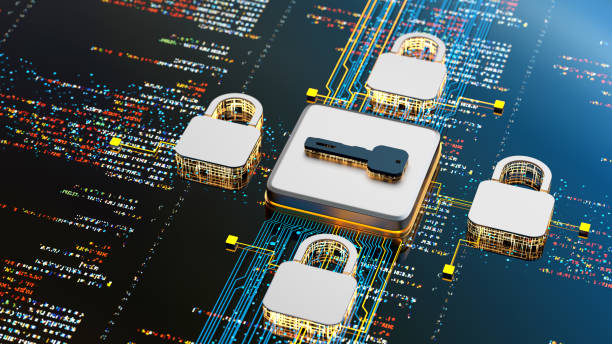
In an era where our lives are increasingly digital, ensuring the privacy and security of our online communications is more important than ever. Whether it’s a casual chat with a friend, sensitive business emails, or financial transactions, protecting these interactions from unauthorized access is crucial. This is where end-to-end encryption (E2EE) comes into play.
End-to-end encryption has become a cornerstone of secure communication in a world riddled with cyber threats. It is not just a technical solution—it’s a necessity for maintaining trust and privacy in our digital interactions. In this article, we’ll delve into the significance of end-to-end encryption, how it works, and why it’s essential for individuals and businesses alike.
What Is End-to-End Encryption?
End-to-end encryption is a method of securing data by ensuring that only the sender and the intended recipient can access the information. The data is encrypted on the sender’s device and only decrypted on the recipient’s device. This means that even if the data is intercepted during transmission, it remains unreadable to anyone who doesn’t have the encryption key.
Popular communication platforms like WhatsApp, Signal, and Telegram use end-to-end encryption to protect user messages. This technology ensures that even the service providers themselves cannot access the content of the messages, offering users a high level of privacy.
How Does End-to-End Encryption Work?
At its core, end-to-end encryption relies on cryptographic keys: a public key and a private key. Here’s how the process works:
- 1. Encryption: The sender encrypts the message using the recipient’s public key.
- 2. Transmission: The encrypted message is transmitted through the internet. Even if it’s intercepted, it cannot be deciphered without the private key.
- 3. Decryption: The recipient uses their private key to decrypt the message and access its contents.
This process ensures that only the intended recipient can decode and read the message, keeping the communication private and secure.
Why Is End-to-End Encryption Important?
1. Protects Privacy
With cybercrime on the rise, maintaining privacy is more critical than ever. End-to-end encryption ensures that personal conversations, business negotiations, or confidential information remain private, even in the face of data breaches or surveillance attempts.
2. Prevents Unauthorized Access
Unlike traditional encryption methods where intermediaries like service providers can access unencrypted data, end-to-end encryption eliminates such vulnerabilities. No one—not hackers, governments, or even the platform hosting the communication—can access your information without your consent.
3. Safeguards Sensitive Data
From banking details to medical records, sensitive information is constantly shared online. End-to-end encryption ensures that such data is secure, protecting individuals and organizations from identity theft, financial fraud, and other malicious activities.
4. Builds Trust
For businesses, trust is a valuable currency. Clients and customers are more likely to engage with a company that prioritizes data security. By implementing end-to-end encryption, businesses can demonstrate their commitment to protecting customer information.
5. Supports Freedom of Expression
In regions where freedom of speech is restricted, end-to-end encryption empowers individuals to express themselves without fear of government surveillance or censorship. It plays a vital role in preserving democracy and human rights worldwide.
Challenges of End-to-End Encryption
While end-to-end encryption offers numerous benefits, it’s not without challenges:
1. Misuse by Criminals
One of the primary criticisms of end-to-end encryption is its potential misuse by criminals to hide illegal activities. Law enforcement agencies often argue that encryption makes it harder to track and apprehend offenders.
2. Complexity for Users
Although modern apps have simplified encryption, understanding and implementing it can still be challenging for less tech-savvy users or businesses.
3. Potential for Backdoors
Some governments advocate for “backdoors” in encryption systems to allow authorized access. However, such measures can compromise the integrity of encryption, making systems vulnerable to exploitation by bad actors.
Despite these challenges, the benefits of end-to-end encryption far outweigh its drawbacks. It remains one of the most effective tools for securing digital communication.
How Businesses Can Leverage End-to-End Encryption
For businesses, adopting end-to-end encryption can be a game-changer. Here are a few ways companies can benefit:
- Secure Customer Communication: Protect customer interactions, such as emails and chats, from being intercepted.
- Protect Intellectual Property: Safeguard trade secrets and confidential business strategies.
- Enhance Compliance: Meet regulatory requirements for data protection, such as GDPR or HIPAA.
- Build a Competitive Edge: Demonstrate a commitment to security and gain customer trust.
Companies like financial institutions, healthcare providers, and legal firms, in particular, stand to gain significantly by integrating end-to-end encryption into their operations.
End-to-End Encryption and the Future
As technology continues to evolve, the importance of end-to-end encryption will only grow. With emerging threats like quantum computing, encryption technologies will need to adapt to remain effective. Additionally, the push for privacy-focused solutions will likely drive innovation in the encryption space, leading to even more robust security measures.
It’s crucial for individuals, organizations, and policymakers to recognize the value of end-to-end encryption and advocate for its widespread adoption. In a world where data is the new currency, protecting that data is non-negotiable.
Conclusion
End-to-end encryption is not just a technical feature—it’s a vital tool for preserving privacy, securing communications, and building trust in the digital age. As cyber threats become more sophisticated, the need for robust encryption has never been more urgent. By understanding and embracing end-to-end encryption, we can protect ourselves and our businesses from the risks of the online world.
If you’re looking to deepen your knowledge about encryption and other cybersecurity measures, don’t miss our next article, where we’ll explore “Emerging cybersecurity threats and solutions” Stay tuned to TechAfri for more insightful and actionable tech tips!

